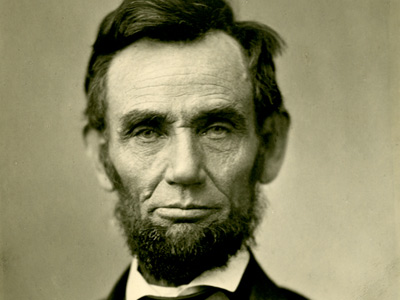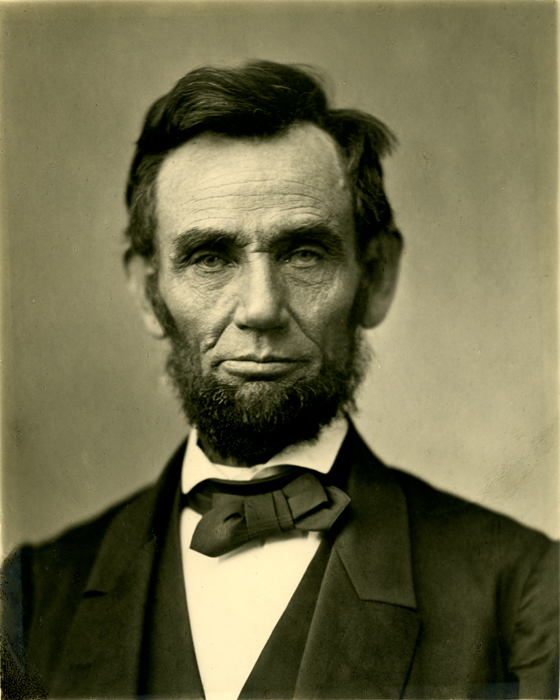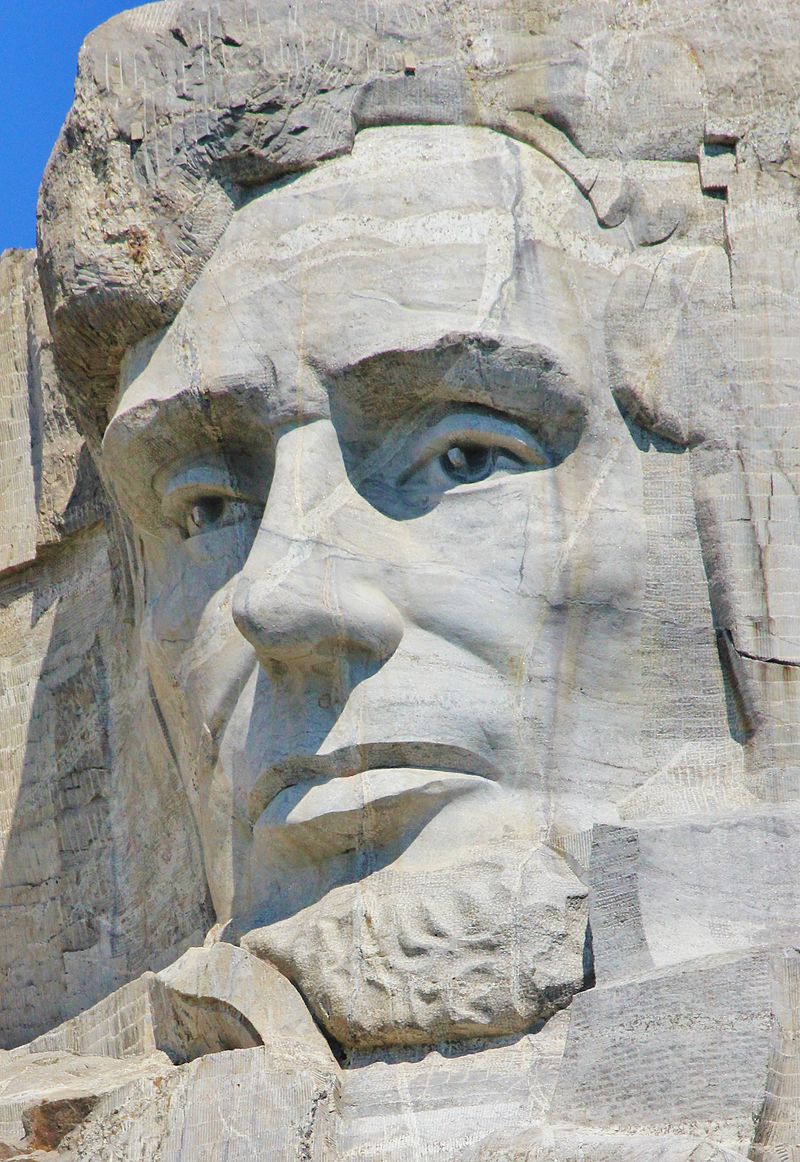Abraham Lincoln (1809-1865)
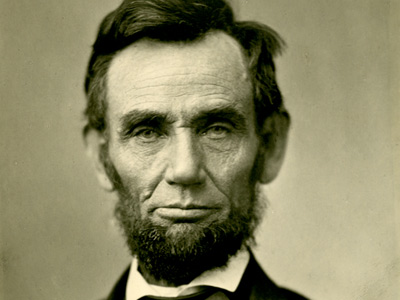
Early career and militia service
In 1832, at age 23, Lincoln and a partner bought a small general store on credit in New Salem, Illinois. Although the economy was booming in the region, the business struggled and Lincoln eventually sold his share. That March he began his political career with his first campaign for the Illinois General Assembly. He had attained local popularity and could draw crowds as a natural raconteur in New Salem, though he lacked an education, powerful friends, and money, which may be why he lost. He advocated navigational improvements on the Sangamon River.
Before the election, Lincoln served as a captain in the Illinois Militia during the Black Hawk War. Following his return, Lincoln continued his campaign for the August 6 election for the Illinois General Assembly. At 6 feet 4 inches (193 cm), he was tall and "strong enough to intimidate any rival". At his first speech, when he saw a supporter in the crowd being attacked, Lincoln grabbed the assailant by his "neck and the seat of his trousers" and threw him. Lincoln finished eighth out of 13 candidates (the top four were elected), though he received 277 of the 300 votes cast in the New Salem precinct.
Lincoln served as New Salem's postmaster and later as county surveyor, all the while reading voraciously. He then decided to become a lawyer and began teaching himself law by reading Blackstone's Commentaries on the Laws of England and other law books. Of his learning method, Lincoln stated: "I studied with nobody". His second campaign in 1834 was successful. He won election to the state legislature; though he ran as a Whig, many Democrats favored him over a more powerful Whig opponent.
Admitted to the Illinois bar in 1836, he moved to Springfield, Illinois, and began to practice law under John T. Stuart, Mary Todd's cousin. Lincoln became an able and successful lawyer with a reputation as a formidable adversary during cross-examinations and closing arguments. He partnered with Stephen T. Logan from 1841 until 1844. Then Lincoln began his practice with William Herndon, whom Lincoln thought "a studious young man".
Successful on his second run for office, Lincoln served four successive terms in the Illinois House of Representatives as a Whig representative from Sangamon County. He supported the construction of the Illinois and Michigan Canal, which he remained involved with later as a Canal Commissioner. In the 1835–36 legislative session, he voted to expand suffrage to white males, whether landowners or not. He was known for his "free soil" stance of opposing both slavery and abolitionism. He first articulated this in 1837, saying, "[The] Institution of slavery is founded on both injustice and bad policy, but the promulgation of abolition doctrines tends rather to increase than abate its evils." His stance closely followed Henry Clay in supporting the American Colonization Society program of making the abolition of slavery practical by its advocation and helping the freed slaves to settle in Liberia in Africa.
HISTORY
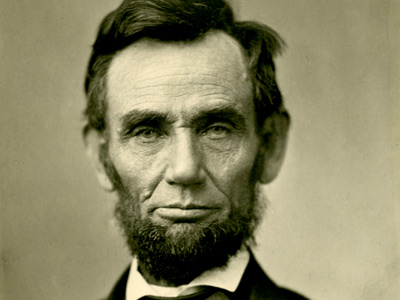
RESOURCES
This article uses material from the Wikipedia article "Abraham Lincoln", which is released under the Creative Commons Attribution-Share-Alike License 3.0.
© Stories Preschool. All Rights Reserved.
